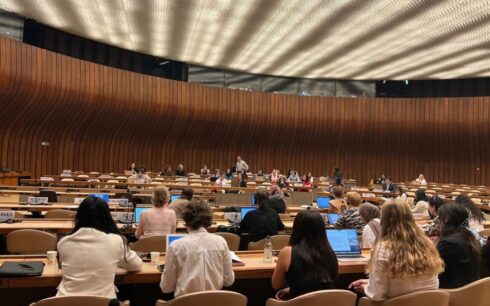Taliban’s restrictions have forced many women and girls to leave Afghanistan over the past nearly three years.
Several women told Amu that they are the breadwinners of their families, but the Taliban has cut off their sources of income, leaving them no choice but to leave the country. Some citizens are also leaving to seek educational opportunities for their daughters.
Shabana, a former medical student and sports coach, was particularly affected. “I was a coach teaching sports. They [the Taliban] shut it down. I was studying; that too was prohibited. I had a beauty salon and was earning; that too was banned,” she said. “Because I can’t get my expert field certificate, I can’t work in the medical field. There is no other option for me but to sell everything I have and think about migrating to neighboring countries.”
Shabana also worked as a makeup artist and owned beauty salons, but the Taliban closed down all female beauty salons in the country. She feels deprived of all avenues for her career and personal growth, leading her to consider leaving Afghanistan.
Many citizens have endured severe hardship under the Taliban’s rule, arguing that the Taliban has stripped away all opportunities by depriving women and girls of their right to education, work, and freedom.
“If schools are not reopened for us to continue our studies, we will be forced to go abroad because if there is no education, we cannot build our life and future,” said Sara, a resident of Ghor.
“Women and girls are forced to go overseas to get access to education and work because it has become difficult for them to study and work here,” said Homayoun, a resident of Ghazni.
A UN report on Afghanistan reveals that since the Taliban’s takeover, the group has issued more than 50 decrees directly and indirectly affecting women. Many Western countries, including the United States, have stated that there will be no normalization of relations with the Taliban unless it respects human rights and the rights of women and girls in the country.





